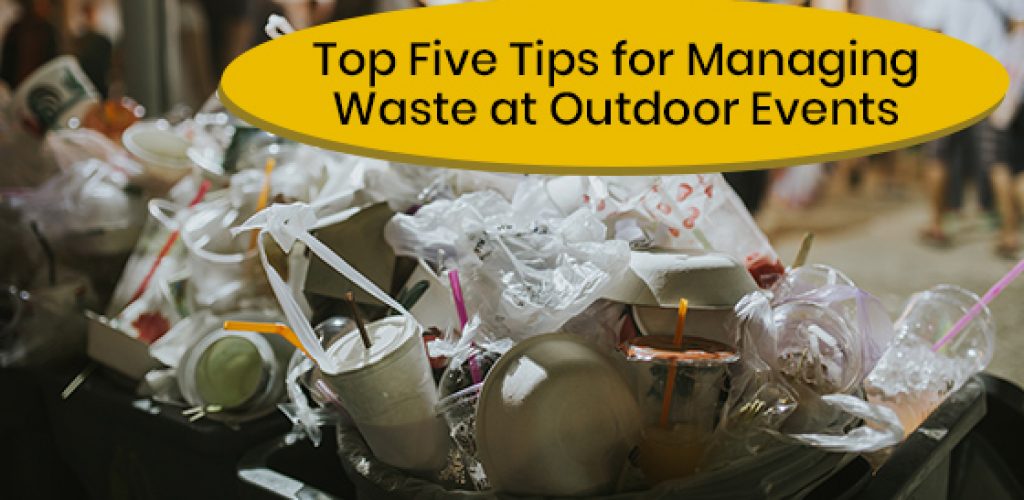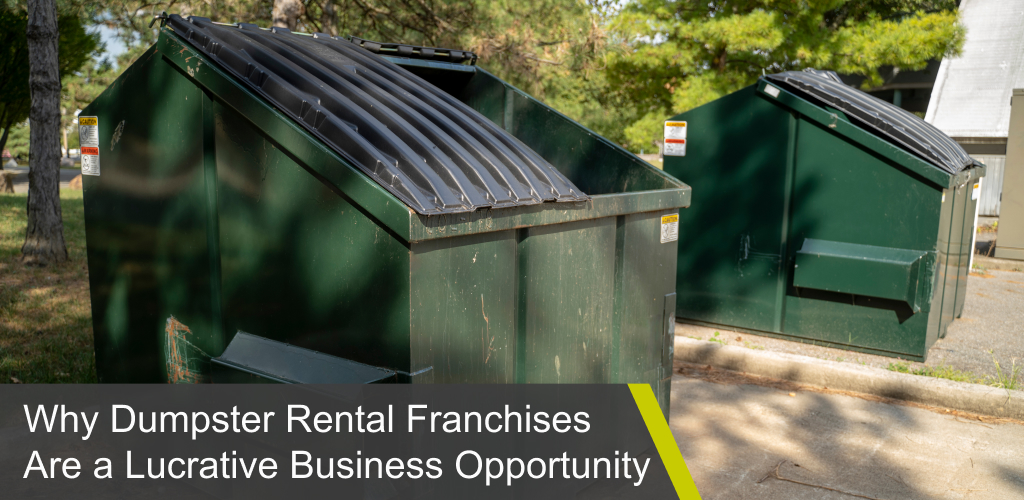Top Five Tips for Managing Waste at Outdoor Events

One common occurrence in event planning is large outdoor events; with almost unlimited space, the possible types of attractions that an event can feature are endless. Whether it’s a food, music, or street festival, there’s nothing like holding an event outdoors to attract large crowds eager to have fun.
But when the music is unplugged, the dancing stops, and the food is gone, your next major task is cleanup and waste disposal to restore the grounds and proceed to a smooth egress. In virtually endless grounds, it’s impossible to keep track of where guests and party-goers chuck out every single piece of trash. Luckily, though, it’s not impossible to implement an effective waste management system for outdoor events.
Check out our complete guide to waste management for events held outside. Get your event to go off without a hitch, and give guests a memorable experience with these groundskeeping tips:
Limit Items Entering the Venue
Perhaps the easiest way to keep trash out of the venue, or at least minimize it, is to limit what guests can bring to the grounds. This gives you a jumpstart in waste management, as there will be considerably less trash to clear after the event. For instance, you can check for alcohol bottles and makeshift containers, as well as plastic beverage bottles so guests refrain from bringing their own drinks in containers that will inevitably end up as trash. As an added bonus, this also protects guests from ingesting beverages from unknown or questionable sources, as they will be restricted to refreshments provided at the event, which you can screen beforehand.
Sort Your Waste
One of the most effective ways to speed up waste disposal after an outdoor event is to implement waste segregation. While you can’t count on every single guest to throw their trash in the appropriate bins, setting up separate bins for food waste, recyclables, and non-recyclables will make it a tad easier to dispose of all the garbage after the event, as most of the similar waste materials will already be grouped together. To encourage waste segregation early on, it also helps to staff designated waste disposal areas, so attendants can direct guests to the right trash bin when disposing of their waste.
For some organizers, setting up single-stream trash bins might make it easier to encourage guests to at least dump their trash in receptacles instead of leaving them lying on the ground. This can help avoid confusion, especially as guests start to pile up along exit points and end up dumping their trash in a hurry as they leave. To properly dispose of all the waste in single-stream trash bins, it helps to set up a sorting station after the event, so your team can easily separate waste materials and handle them accordingly.
Avoid Contamination in Waste Haulers
Despite best efforts to segregate waste, proper disposal may be derailed by contaminated waste haulers. This usually happens when different kinds of waste are mixed together, such as biodegradable items with recyclables and non-recyclables. To avoid this, it’s important to have separate garbage bins for different waste materials or set up a sorting station to segregate waste items after the event prior to disposal. By avoiding contamination, you can guarantee that recyclables can actually be recycled, and other waste materials can be properly disposed of.
Open or Restricted Access Grounds
Depending on the event, access to the venue itself may either be open or restricted. Grounds are usually kept open for free events, so people can freely stop by and check out the attractions without buying a ticket. In contrast, restricted grounds are designed for ticket-only events. While it may not be apparent at first, the type of access at your event can impact the amount of trash that your team has to clean up.
In open events, it’s best to be prepared for a larger amount of waste, since unrestricted access means people walking in with all sorts of food and drinks. It’s hard to watch out for every plastic water bottle, gum wrapper, tobacco product, and takeout container dumped directly on the grounds. The sheer volume of foot traffic will also make it harder to monitor waste segregation during the event, so make sure to have a sorting station ready during cleanup.
On the upside, restricted, ticket-only events make it easier to control crowds. With much fewer people than an open event, it’s a bit easier to keep an eye on garbage receptacles and even intercept guests about to throw their trash in the wrong bin. Plus, because a ticket-only event means tighter security, you can instantly control items that guests bring into the festival grounds and minimize trash.
Use Mixed Waste Garbage Bins
With weather conditions, set-up contingency plans, and event security to consider, outdoor events are already almost twice as much stressful and tedious compared to typical indoor events. You shouldn’t have to add waste disposal on top of that, especially because trash is harder to monitor on virtually endless grounds.
To learn about garbage collection and recycling for outdoor events, call Gorilla Bins at 877-700-2467 or contact us here.













